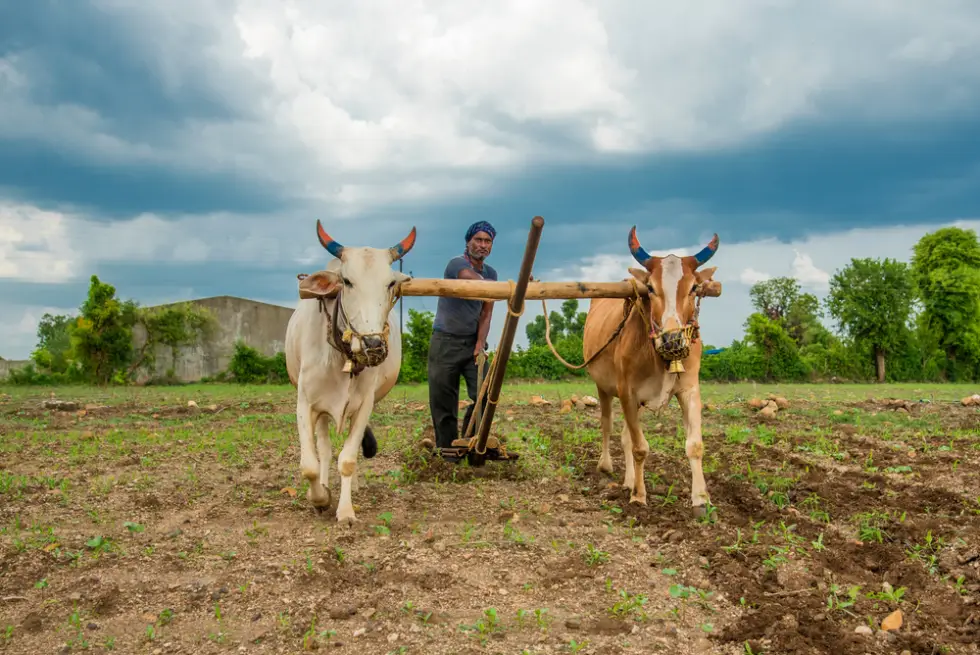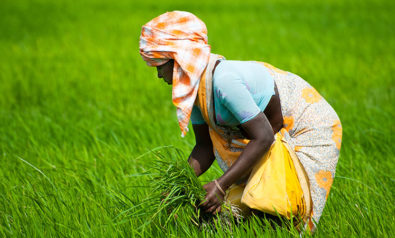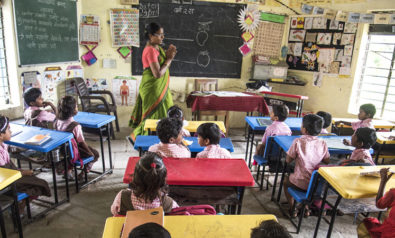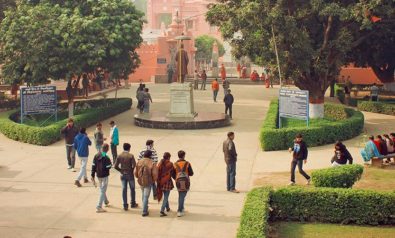According to the Centre for Monitoring Indian Economy, India faces a serious decline in employment due to the COVID-19 crisis. An estimated 122 million people lost their jobs during the first quarter of 2020. Streams of migrant workers returned to their villages — often the only fallback option for the millions working in urban informal sectors. Regardless of their vows to never come back to the cities, the majority of them will likely have to return in order to earn their livelihood. In the present state of affairs, agriculture, the mainstay of rural India, cannot offer them incomes comparable to industries and construction firms in cities.
360˚ Context: The State of the Indian Republic
Despite its falling share in the economy, agriculture is India’s most important sector. Its contribution to the country’s GDP has decreased from 51.81% in 1950-51 to 15.87% in 2018-19, but it still employs about 42% of the country’s workforce. While increasing shares of secondary and tertiary sectors is a natural phenomenon of economic growth, in India, this has happened without maximizing the potential for growth in agriculture. Per-acre yields of rice and wheat in India are drastically lower than those of other BRICS nations.
The shift in GDP share is the result of high growth rates in secondary and tertiary sectors despite relative stagnation in agriculture. The agricultural sector still has a massive scope to generate greater income and employment. However, this can be done only with the spirit of liberalization, similar to what other sectors of the economy have received since the 1990s.
Overregulation and Underutilization
Soon after independence, land reform laws were enacted throughout the country with the objective of distributing land equitably and increasing the efficiency of farm operations. This produced only partial success due to a variety of reasons. The ownership of only 4% of operated land could be transferred to cultivators, 97% of which lies in just seven states — Assam, Gujarat, Himachal Pradesh, Karnataka, Kerala, Maharashtra and West Bengal. Notwithstanding this uninspiring outcome, land reform laws foisted excessive restrictions on the tenancy of agricultural land.
This has adversely affected the growth of agriculture in the country. Landowners are reluctant to lease out their land under formal tenancy due to their fear of losing it permanently. According to National Sample Survey Reports, about 15 million tenants cultivate 10 million hectares of land on an informal basis; 92% of these tenants are landless laborers or marginal farmers. They have no security of tenure or access to institutional credit, crop insurance and other benefits offered to farmers under government schemes. Due to legal restrictions on tenancy, many landowners who cannot cultivate themselves prefer to leave their land fallow. In 2015-16, 26.72 million hectares of land were left fallow across India.
These restrictions on access to cultivable land not only deprive poor people in rural areas of opportunities to enhance their incomes, but also have a detrimental effect on the growth of the entire agriculture sector. Simply formalizing tenancy and cultivating millions hectares of fallow land can be a game-changer for agriculture in India. Once tenants get security of tenure and access to institutional credit, they will have requisite incentives and funds to make long-term investments on their land.
This can be achieved only with immediate and effective policy interventions by state governments. The National Institution for Transforming India, the premier policy think tank of the government of India, has set the ball rolling by publishing the Model Agricultural Land Leasing Act, 2016, to help the states enact new laws or make required changes to their existing laws on the tenancy. The Model Act seeks to formalize tenancy agreements, circumventing the restrictions imposed by the land-reform laws of the state. It aims to integrate the security of tenure along with the protection of ownership. However, until now, only a few states have gone ahead in this direction.
Uttar Pradesh, Uttarakhand and Madhya Pradesh have amended their existing laws to allow the renting of agricultural land on liberal terms. The Maharashtra Agricultural Land Leasing Bill, 2017, now awaits the assent of the president of India. The Andhra Pradesh Land Licensed Cultivators Act, 2011, was enacted even before the Model Act of 2016 was framed. This special law has recently been replaced with the Andhra Pradesh Crop Cultivator Rights Act, 2019. The other states also need to implement this vital reform to transform agriculture in their states.
Alternate Solutions
The enactment or amendment of laws is only a first step in improving the access of the rural poor to the land. Even in states where these laws have been enacted, very few landowners and tenants have come forward to enter formal agreements. Landowners are still apprehensive of losing their land, and tenants are still afraid of getting ousted if they insist on formal agreements. Therefore, state governments also need to effectively communicate with tenants and landowners to allay their fears and convey the benefits of formal agreements to them.
Until the time when requisite laws are enacted effectively, group loans can provide relief to informal tenants. In Kerala, where tenancy is illegal, about 250,000 informal tenants have organized themselves into joint liability groups. These groups receive crop loans from banks without requiring formal tenancy agreements. The guidelines of the Reserve Bank of India and the National Bank for Agriculture and Rural Development allow such agreements without requiring formal tenancy. Alternatively, Odisha has recently launched the Balaram scheme to provide agricultural credit to groups of landless laborers. Other states should also liaise with banks to provide credit to informal tenants until the time when legal provisions for allowing tenancy are put in place.
Such reforms have enormous potential to revamp and develop Indian agriculture, especially during the ongoing economic turmoil. At the national level, the central government has shown the way forward by deregulating agricultural markets. Now it is time for states to act decisively.
The views expressed in this article are the author’s own and do not necessarily reflect Fair Observer’s editorial policy.
Support Fair Observer
We rely on your support for our independence, diversity and quality.
For more than 10 years, Fair Observer has been free, fair and independent. No billionaire owns us, no advertisers control us. We are a reader-supported nonprofit. Unlike many other publications, we keep our content free for readers regardless of where they live or whether they can afford to pay. We have no paywalls and no ads.
In the post-truth era of fake news, echo chambers and filter bubbles, we publish a plurality of perspectives from around the world. Anyone can publish with us, but everyone goes through a rigorous editorial process. So, you get fact-checked, well-reasoned content instead of noise.
We publish 2,500+ voices from 90+ countries. We also conduct education and training programs
on subjects ranging from digital media and journalism to writing and critical thinking. This
doesn’t come cheap. Servers, editors, trainers and web developers cost
money.
Please consider supporting us on a regular basis as a recurring donor or a
sustaining member.
Will you support FO’s journalism?
We rely on your support for our independence, diversity and quality.




















